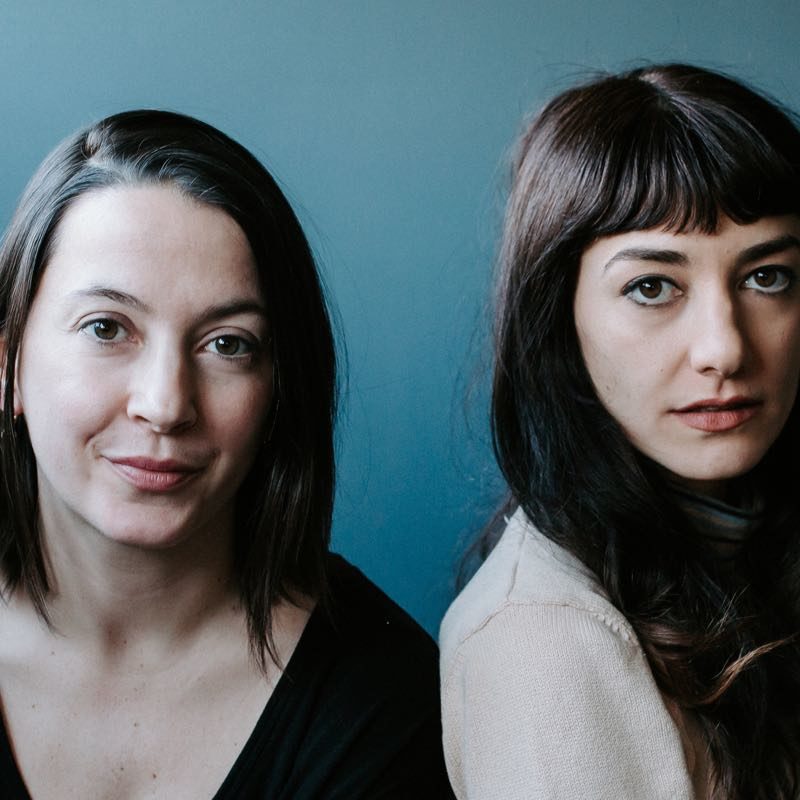Sofia Alvarez and Sheila Vand on Nylon, Blockchain Theater Project, and More

March 7th, 2019
In the new play Nylon, written by Sofia Alvarez, Anna, a woman in her early thirties played by Sheila Vand, has to confront the choices she made in her twenties and how they reverberate into her life going forward, and exactly how much control she—or anyone—has in the setup of all the seemingly small non-choices that lead to the big decisions people make. The play is the first from the newly formed Blockchain Theater Project, founded by Sofia along with Nicola Korzenko, which combines theatre, tech, and an artistic directorship that rotates (each play is chosen by the playwright of the play that precedes it). With backgrounds that span multiple mediums—Sofia recently penned the Netflix adaptation of To All the Boys I’ve Loved Before and Sheila has starred in films like We the Animals and A Girl Walks Home Alone at Night— Nylon and Blockchain also aim to disrupt the usual producing model. I recently spoke to Sheila and Sofia at Sofia’s home in Brooklyn, joined by her three-month-old son Gus, about the inspiration for Nylon, unlikable women, and how to shake up the theatre.
What was your initial inspiration for Nylon?
Sofia: My initial inspiration for the play was I was reading Doris Lessing’s The Golden Notebook at the time, and there’s a section in that novel where she lists two pages of one sentence short stories that she’s not going to write. I challenged myself, “Okay. If I were going to write one sentence, and then base a play off of that sentence…” That was the little task I set myself. So I wrote the sentence that is actually no longer an accurate description of the play, but it was the spark. Which was: “A woman has coffee with a man she used to love after marrying a man she doesn’t.” That’s how I wrote the first act [of Nylon]. Then, very quickly, the first act totally got out of my control in a great way, and the play became something totally different. But that was the first little spark. And one of the ways that I wrote that first act is I did this thing where I didn’t allow myself to look back when I kept writing. So I wrote 10 pages and then the next day I started up and read the two lines prior, but I didn’t read the 10 pages prior. And that’s how I went through the whole first act. What was great about that was it let the play keep surprising me. So the twist of the first act was not something I was expecting; I surprised myself with it in a really fun way.
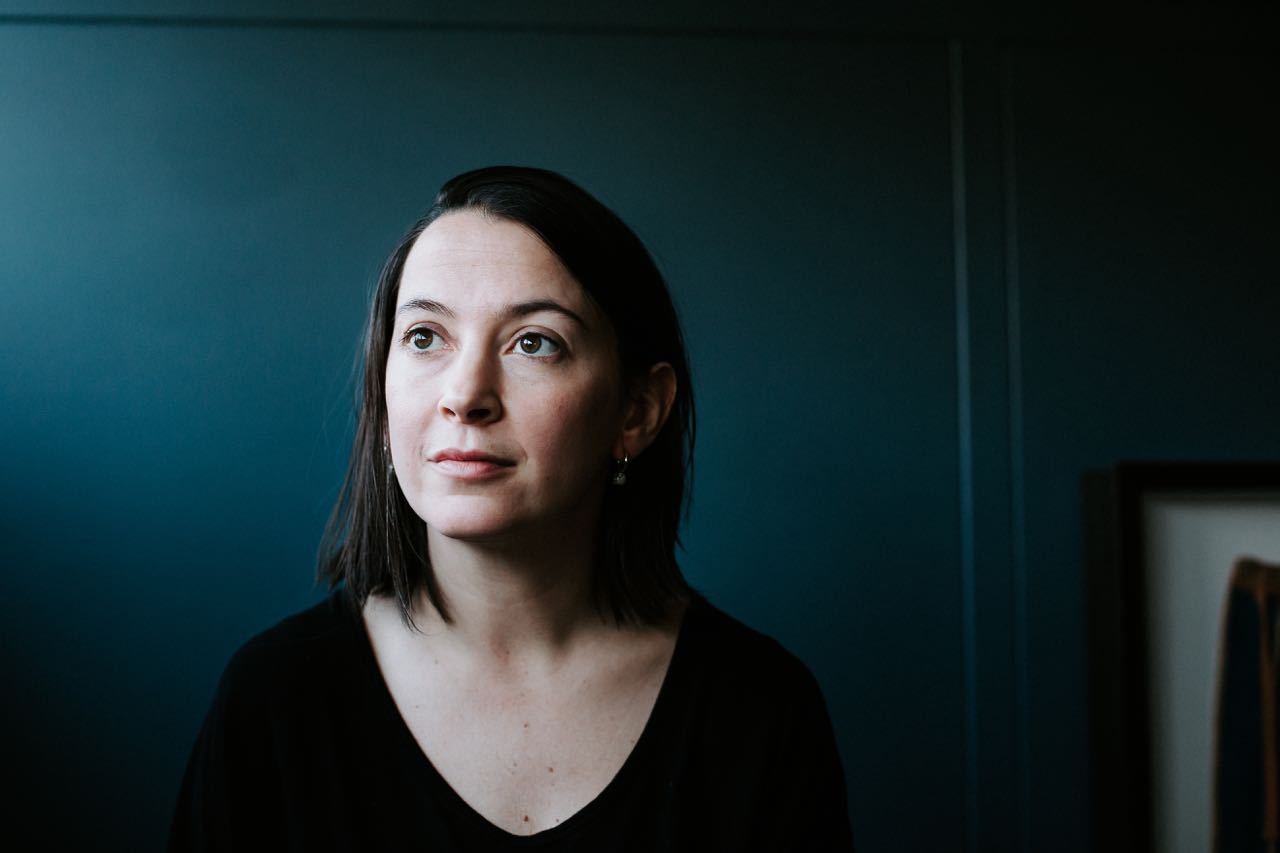
Sheila, what was the first thing that drew you to the play?
Sheila: I really deeply connect with the role, and I felt like there were some layers to this part that are essential to who I am and I haven’t had a chance on screen or on stage to really show those sides of myself. I was excited by the idea of playing such a nuanced and layered character, but also one that is a bit of an anti-hero. I appreciate how much Sofia and our director, Knud [Adams], are not scared to portray people who aren’t necessarily perfectly moral or perfectly sane.
As you’ve been in rehearsals, have you found that there is something that’s completely surprised you with the character? Did you come in with a certain assumption and find it’s changed?
Sheila: Absolutely. I’ve done a couple of readings of this play over the last year or two with Sofia and various groups of people just exploring it, but we didn’t really take it apart until the rehearsal process. I know that Sofia didn’t want the play to transform into something completely different, so she wanted to wait until we were in the room to start unpacking all the things. I had thought in my mind, “Oh, there are all these moments that we need to fix,” and actually, as we’ve gotten in the room and put it up on its feet, I’ve been very surprised at what is illuminated by this text that I initially thought was going to be too abrasive. It’s been interesting because so much is not what it seems in this play and a lot of these characters figure things out before our eyes. So as an actor, I’ve had to make sure that I’m not ahead of the character. It’s been hard to not judge my character because there are some questionable things that she does. But that’s exactly why we’re doing this play and those are the questions we’re trying to explore: why women feel boxed in by what society expects of them, what their friends and family expect of them, and how it makes you feel as a woman when you push back against those restrictions.
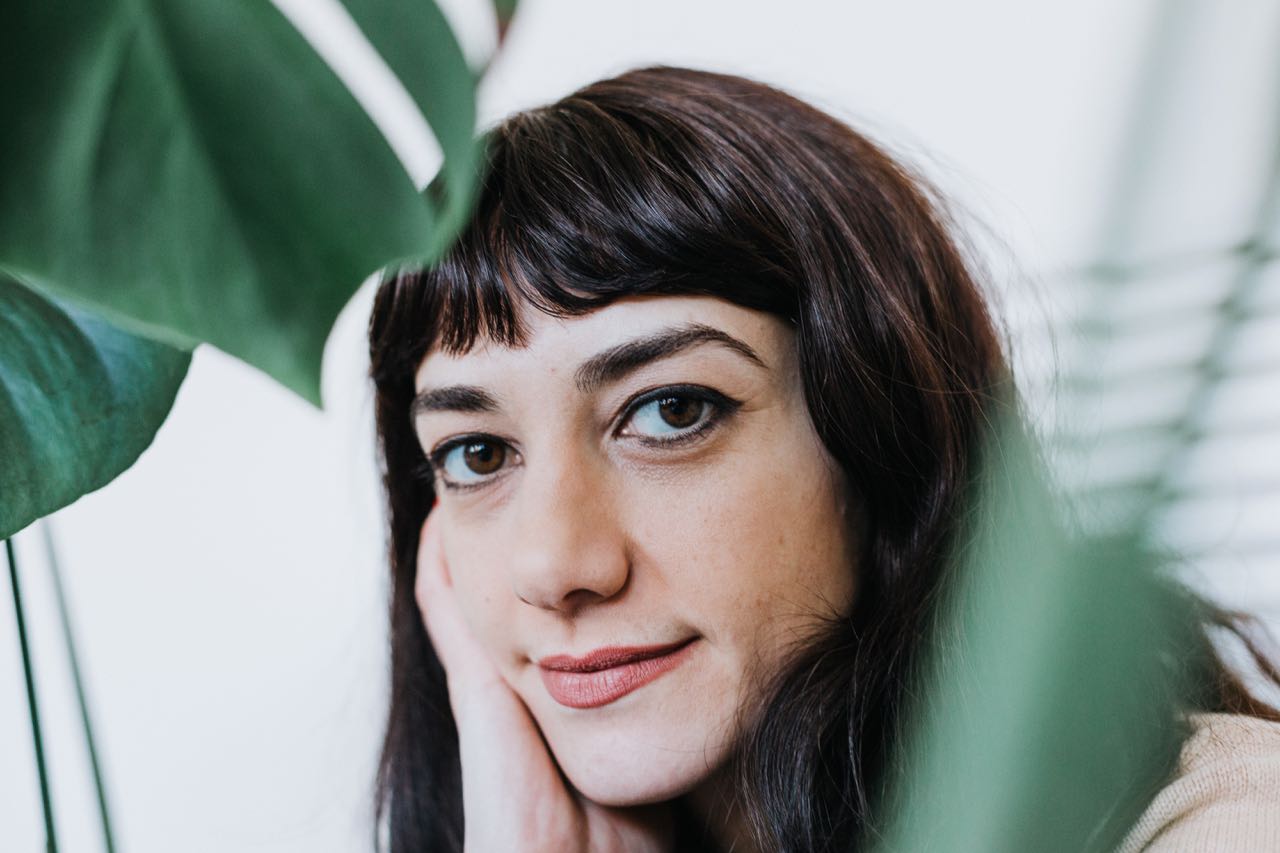
There’s so much pressure on women to be likable, especially in the entertainment industry. As an actor, has there been a challenge to playing somebody who does things that are questionable and, like you were saying, is an anti-hero, and figuring out what the delivery system for that is?
Sheila: I’ve been doing this professionally for a decade and I’m only now really realizing how much some of the pressures of the business are internalized. There definitely is a feeling that not only are you supposed to be likable on the screen, but also off screen. I’ve had to keep reminding myself the entire reason I was drawn to this play was the fact that the role of Anna [is complicated], not that she’s unlikable. I actually really, really love her because of the fact that she’s followed her own sense of morality and her own sense of what she needs, and I appreciate that in her. But it is a tricky thing because I feel like it has been internalized in me to portray women a certain way and portray myself a certain way. It’s freeing and really kind of playful to step inside a person who isn’t concerned about likability. She’s just doing what she thinks is best, even if it’s in contention with what other people think is best.
Sofia: I also love the character. I think she’s so interesting and something about her that I think is a bit of a dichotomy is she does do questionable things and makes some questionable choices and is constantly talking about her thought process in making those questionable choices, but the way she appears is also super important to her. Those things are really at odds with one another, in that you see her making choice after choice that some people might wince at, but at the same time, she’s someone who throughout the play, at every turn, is asking people what they think of her and is really into presentation and wanting to be seen as someone moral.
Sheila: There was a funny moment in rehearsal one day when I was like, “Oh, is it just so gross that she says this?” And Claire Siebers, who’s another actress in the play, was sitting on the side of the room and just yelled out, “Be gross!” And I just loved that. Again, it was a reminder that that’s exactly why I wanted to do this play. Because it’s complicated, especially a situation like the one that Anna is in, which was getting pregnant at a time where she really wasn’t ready to be a mother, and because of her religion, having an abortion wasn’t an option, and so the only choice she feels she was left with was to give the baby away. She believes she did what was best. And everyone else has their own opinions about it. But I just love that idea: Be gross. So that’s been my motto throughout this play.
We’ve been talking a lot about women and the idea of being unlikable. Do you find there’s extra baggage when the choices are around being a mother and the idea of good mothers vs. bad mothers?
Sofia: Totally. To talk about Doris Lessing again, she’s one of my literary heroes and she left her first two children, and then she had a third child she took with her and was with her throughout her writing life. But her first two kids that she had when she still lived in South Africa, she just left with their dad and eventually their stepmom. So many female writers who we look up to were not very good mothers. Colette’s another example. I used to be really obsessed with reading biographies of female writers and so many times there was talk of how they couldn’t be a quote-unquote good mother and also a writer. There needed to be some kind of choice.
Sheila: I feel like in this play, some of its twists and turns are back and forth between what those two things mean, being a good mother or a bad mother. I’m not going to tell you the ending, but today in rehearsal, we were quite pleased with ourselves because we realized that it’s just very tricky to make any sort of conclusion about what it means to be a good mother and who has the right to decide what’s best for the baby.
Sofia: You find out in the first act, a big reason that she gives the baby up is because she thinks she’s being a good mother to do so. She says that in part of the play. It’s tricky. It’s not always a black and white answer.
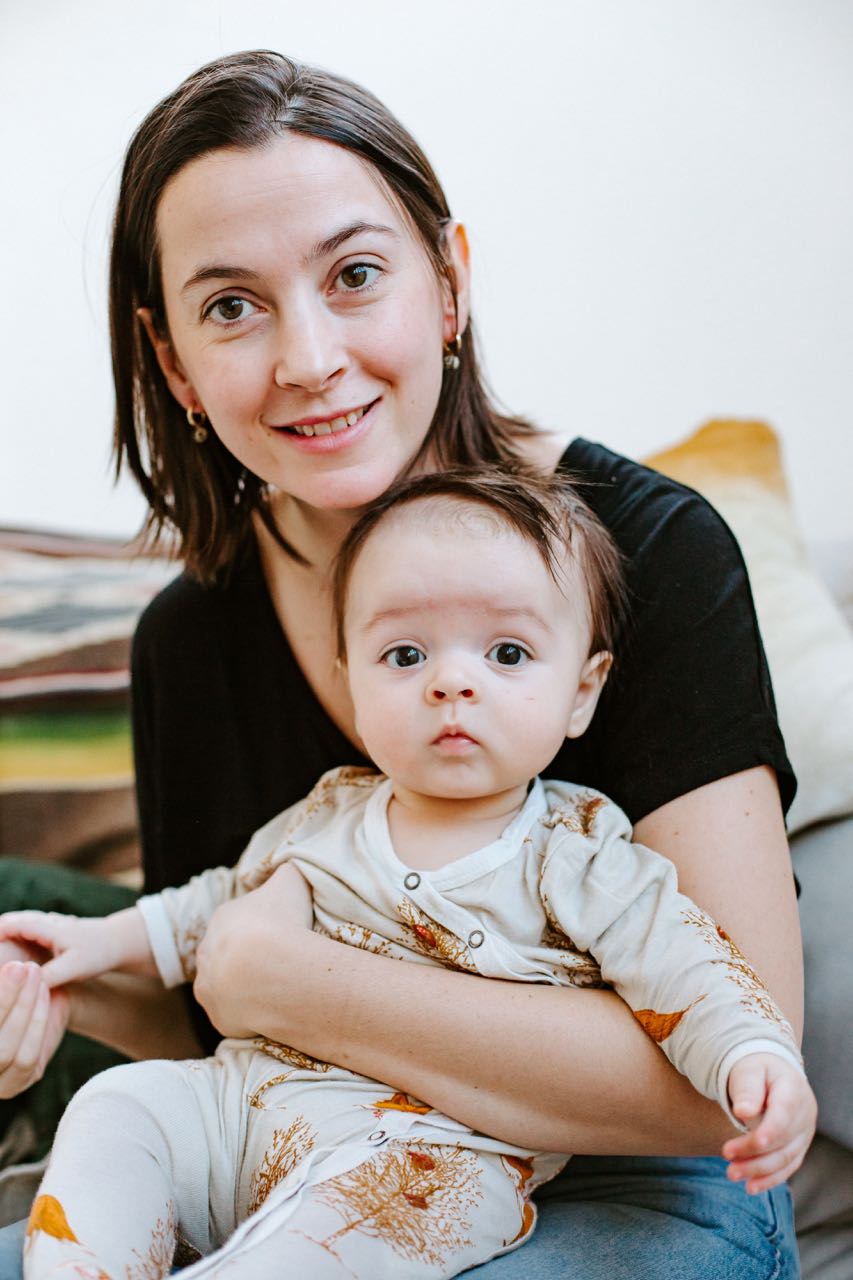
There’s a really interesting dynamic between Anna and the two men in the play and the kind of subtle male manipulation of women that goes on.
Sheila: That’s another example of not being afraid of being unlikable. In the playing of it, I kept having an adverse reaction to those moments because, especially right now in our current climate, we’re so sensitive to mansplaining and anything of that nature. But at the same time, that exists and that is often how men treat women. And a lot of times that’s subconscious and it’s not malicious and it’s ingrained. I love that the play doesn’t shy away from those dynamics because I think they’re really authentic and it helps us see the things that are trapping this woman, or at least making her feel like she’s trapped.
Sofia: Even in the writing of it, it always makes me kind of mad when there are these two men who start the play as almost rivals, and then the last scene when you see them together where they kind of shake hands over the protagonist’s head after she’s like in her place. And I’m always like, ew. I’ve said before that this is a play about a woman who starts off with a lot of power and we see her slowly losing it throughout the play. I think it’s about more than that, and the power she ends up with is questionable. I don’t think the ending is just one thing or just another; ideally, it’s a question of where she ends up.
Sheila: Another thing I love about this play is that there’s so much talk and commentary in the world about millennials and our generation and what we are like. And we’re now getting older. What I love about a lot of Sofia’s work and a thematic thruline I see is what it’s like to enter your thirties and the specific things that change when you really become an adult. And how timing affects all of our lives and how things could go so differently if timing was different. That’s just something that I, as a 33-year-old woman, really relate to, that it’s a whole different set of challenges, this decade, from the last one. Besides this baby and this woman who’s trying to figure out these cracks in her narrative and in her life, it’s also about coming to terms with where you’re at and that maybe where you’re at isn’t where you always thought you would be.
Sofia: And choices have consequences. Even when you’re young and you feel like your choices don’t mean as much, they’re laying the groundwork for where you’re going to end up in ways you don’t even realize.
It’s also that very specific group of millennials who were in that first wave of people who didn’t meet traditional markers of adulthood at the traditional ages.
Sofia: I think [those things] happening later is really true, but I think it’s always been true that they happen later when you live places like New York and L.A. and big cities. But when this character gave away the child in question in the play, she was around 24, 25, maybe even 26. She was an age where you could still be on your parent’s health insurance. So I think there’s something in that age now where previous generations would’ve thought, “You’re a full adult at 26.” But in our generation, even health insurance thinks you’re still kind of a child. And so you can tell yourself, “I’m too young, I’m not ready, I’m still a kid,” in a way that you might not have been able to tell yourself that same thing 30 years ago at that age. You would’ve already had three children and been married since you were 22. So I think there is a narrative we tell ourselves about where we are and what we’re ready for, and when adulthood really starts.
Sheila: And that timeline is especially present for women, I think. It’s so different for men. We don’t have those same traditional markers as just a generation above us. So what actually makes us feel like we’ve grown?
Sofia: Even when I was pregnant with Gus, I went to the doctor, and I’m 34 now but when I was pregnant I was 33, and he asked me how old I was. And I said, I’m 33. And he said, you’re too young to have a baby in New York City.
Sheila: When you think about what it actually means to be a mother, why would anybody rush that? It’s such a huge responsibility and so much drama gets inherited whether we like it or not. The other thing that I think is interesting, that I’m only realizing now that we’re talking about this, is I still feel like a kid. I keep waiting for that moment where I’m like, “Okay, I’m an adult now.” And what I’ve told myself is when I have a kid, that’s when I’m not a kid myself anymore. And so I’m thinking about this character who has a kid but then gives it away. Does that mean you just never get to feel that sense of growing up and perhaps that’s part of the reason she has a bit of a stunted growth?
Sofia: In some ways she’s such an adult, in other ways I’m not sure she would describe herself as someone who still feels like a kid, but she acts out as a kid.
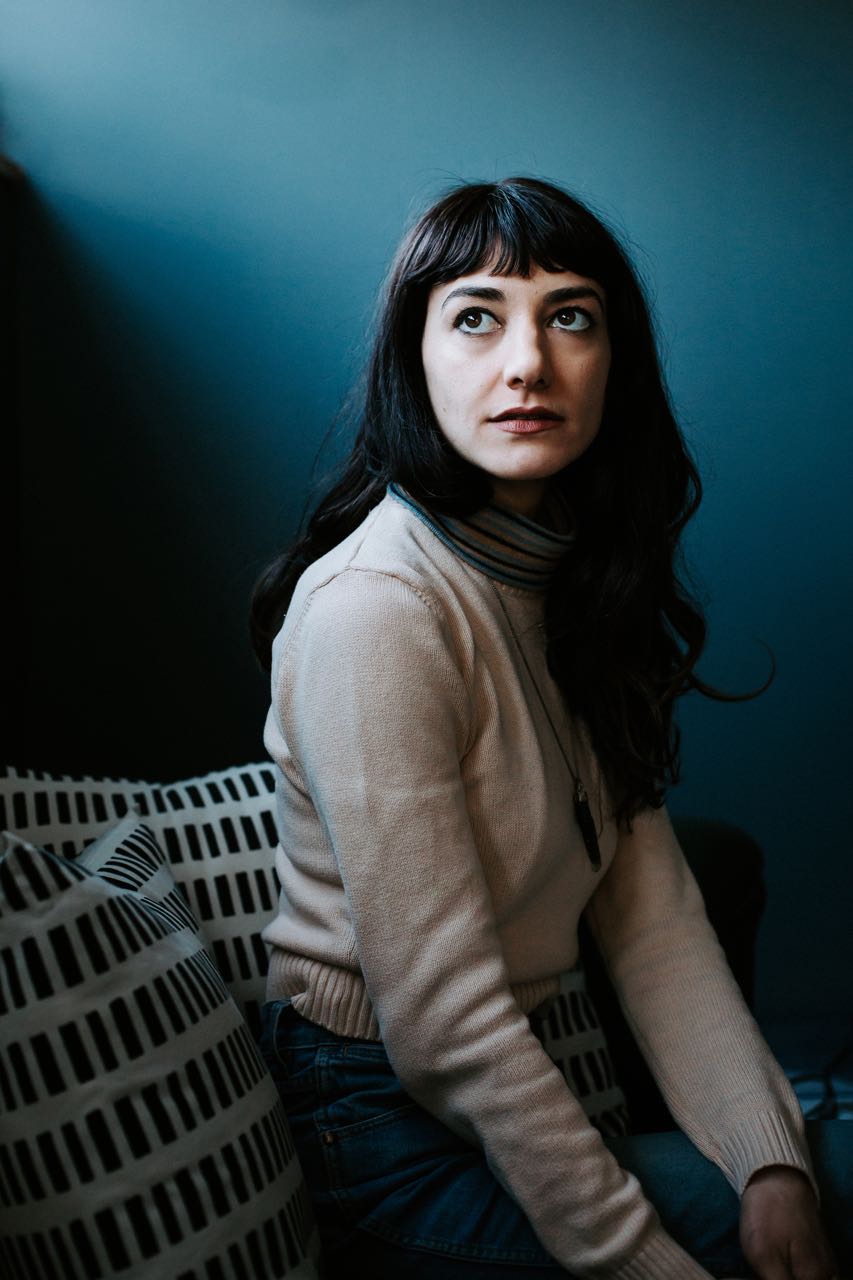
Is there anything, particularly as it pertains to your professional life, where you wish you would’ve known it sooner? Or something that you feel like could be changed to make things better in the industry and would’ve made things different for you?
Sheila: It’s hard to think about that because it’s such a different alchemy for each person. And I feel like Sofia and I are actually quite lucky in that we’ve done well for ourselves and I feel like we are in similar positions and it’s part of why we are both here today, which is that we come from a background of theatre and we really have so much passion and love for live performance. But because of the way things worked out, we both ended up moving towards film and television because when you’re first starting out, you’re taking the jobs you can get.
Sofia: I needed to make a living.
Sheila: We both don’t come from money. We’re not independently wealthy and we needed to pay our bills. And it’s frustrating to me that you can’t just do theatre and make a decent living.
Sofia: Or any living.
Sheila: But part of why we just put our foot down and decided to essentially self-produce something was that we wanted to do theatre. Sometimes I do feel like in this industry people separate those two sides. You’re a playwright or you’re a screenwriter. You’re a theatre actor or you’re an on-camera actor. I think I did things the way I wanted to, but I do wish that I learned a little earlier that it’s okay to not be doing things the way the industry wants. I did go my own way, but I still thought I had to reach certain markers as an actor. Now I’ve reached all of those and now I’m going back to the things I’m more passionate about. I wish that I had maintained some of those things more regularly throughout my path because I got to a point where I thought I really hated acting, and what I realized was that I just missed doing theatre. It feels sometimes when you tip the balance one way in the business, then it’s so hard to come back and say, “Hey, I’m still a theatre actor. I still care about this.” Right now I feel like I have to prove myself to the theatre community in a way that I’ve spent so long proving myself in the film and television world. And it’s just a little tiring.
Sofia: Sometimes people will say, “But you’ve done so much in TV and film, why are you still writing plays? Or what are you still doing in New York?” And it’s like, well, being a playwright makes me a better screenwriter. And I only became a screenwriter because I was a playwright.
Self-producing is hard, but it’s easier since we’re doing this project for the love of it, not to try to get on a TV show or get a TV writing job. And so it makes the intention clearer in a nice way. And as far as doing something differently, it’s hard for me to look back because I think over the past decade and change in New York, I’ve just been trying to make my career as a writer and keep moving forward. But looking forward, one of the reasons that my partner Nicola [Korzenko] and I started this company that Nylon is the first production of is because I was then actively thinking, “If I could make some changes in the theatre world, what would they be?” And a big one was doing plays that I believe in that have never been produced. I made so many important edits to this play that ten years of readings couldn’t tell me. The only thing that could tell me what needed to happen was being in a rehearsal room with actors and a director and designers putting it on its feet the way it was meant to be seen.
Sheila: That’s so important. Sofia’s said that in the past—that plays aren’t meant just for readings. They’re meant to be up on their feet and there’s only so much you can learn from readings. A lot of times, plays stay in development-land forever, and there are so many great plays that slip through the cracks. So who is out there to catch those? That’s what I think is really exciting about Blockchain Theater Project, is that it strives to shine the light on those plays and to give some resources to playwrights.
Sofia: Playwrights who have plays that they want to see produced and maybe wouldn’t self produce them on their own, but if they have a company being like, “We’re going to help you do this. We’ve been through it. We’re going to help you raise money. We’re going to fill out the forms for you. It’s going to be less intimidating, let’s do this together.” The other big thing with this company is I’ll choose the next play but then that playwright will choose the play after that and it’ll keep going. I have found playwrights to be very supportive of one another. It’s a really nice community that can help bolster you up, but when we’re all forced to compete for one spot, especially one spot for a woman or one slot for a person of color, we get pitted against each other constantly. You want to be happy for your peers when something good happens to them, but then also it’s tricky when there are just not a lot of production slots to go around. So we [wanted to] have something where we’re saying, “Yes, I want my play to be produced, but I also want your play that I love that I’ve seen six amazing readings of and I don’t understand why it hasn’t been produced, I want to see that play up too,” and we’re not just competitors in the playwright Hunger Games, we’re also each other’s biggest fans and supporters.
Could you talk a little more about how you came up with the producing model?
Sofia: The way that I came up with the model was with someone who is no longer involved with the company, but who I had a lot of brainstorming with early on. He asked me what I would change about theatre if it was up to me. And he was like, “Whatever the answer to that question is, that’s what you should try to strive for with this company.” We have a model in the States where at the major not-for-profit theatres, both in New York and regionally, artistic directors, the gatekeepers, stay in their posts for sometimes 30+ years, and so you have the same person choosing the plays.
Sheila: That is insane and totally counterintuitive to evolution.
Sofia: And then even if they have great, really smart, hungry people under them, by the time those people get their jobs, they’ve been in their jobs for 30+ years. And it’s still one gatekeeper and you have someone who has an idea of what they’d like to see on stage. Then you have other people saying, “But you should diversify. You should have more voices on your stage.” So they’re trying to think, “What are these voices that my finger’s not necessarily on the pulse of? Where do they come from?” But it’s still that one person’s perspective even though they’re trying to do something a little bit broader. The idea of having a different playwright choose each play is you’re never saying, “Let’s diversify our pool,” you’re just diversifying the chooser. So it’s never going to be the same because it’s never going to be just one person’s opinion.
Sheila: And that’s part of why it’s called the Blockchain Theater Project is because that is in line with the larger philosophy of Blockchain.
Sofia: We accept cryptocurrency donations, but in terms of the tech of it, the Blockchain angle is more that we were inspired by how they’re trying to disrupt the culture of money and we’re trying to disrupt the culture of theatre. So it’s a little bit more ephemeral.
Sheila: And then Sofia’s producing partner Nicola comes from the tech world, so part of it is also to bring together the tech community with the theatre community. When they threw the launch party, it was really exciting because I actually met lots of people from the tech world and they had such creative minds, and I was surprised at how much I was able to connect with them and how hungry they were to find new ways to apply these technologies and to get involved in the arts and create a crossover.
Sofia: People always say there are no young people at the theatre but it’s not because young people aren’t interested, it’s because we don’t reach out to them.
Sheila: It’s an insulated community.
Sofia: So many of my friends who don’t work in theatre are like, “Tell me what I should go see because I just have no idea. And if my parents come to town, we’re just going to go see a revival on Broadway of All My Sons that I studied in high school.”
Sheila: One thing I’m really excited about if Blockchain Theater Project takes off, and I hope it does, is that I feel like we’re also in a dire need for new money. A huge part of why the same material is often perpetuated is the fact that the money is coming from a certain class of people. And also, of course, the subscriber model. It’s exactly the same situation—we can’t offend our subscribers, we can’t offend our investors. And our subscribers and our investors all come from one demographic. And so another thing that was really exciting about the Blockchain Theater Project launch party was, not that all of the tech kids are rich, but again specific to being millennials is we came up in a generation where technology began in our young adult life, and at the moment, there is still so much room for creativity within that. I feel culturally we haven’t figured out technology yet. We’re moving forward at a million miles a minute, and just now are we beginning to realize we need to back pedal a bit. These technologies like Facebook and data collecting are too much. But it was exciting to see some of these young kids who are working in the tech center and doing really well and maybe they don’t just want to invest in stock markets and real estate.
Sofia: Our launch party was very well attended. And someone said to me, “There were so many young people and new people. You guys did so well.” And my husband said, “Yeah, that’s because [Blockchain] invited not only people who work in theatre.
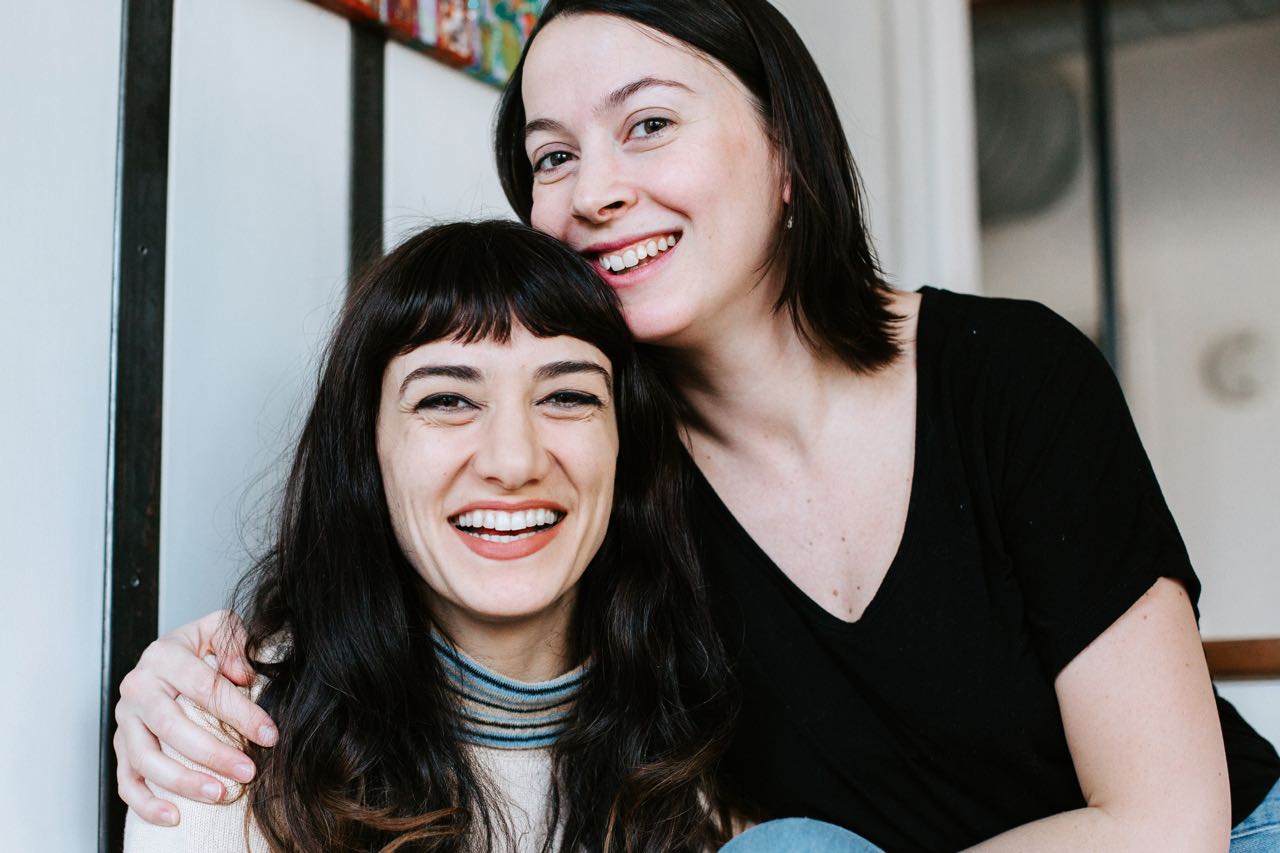
Since you both work in other areas of the arts beyond theatre, is there anything you see in other areas of culture that you think is really interesting and that could be applied to theatre or that you would like to see the theatre community embrace more?
Sofia: This goes back to what I was saying before, but I think in theatre something that’s really important is—I don’t want to call it marketing, because it’s not marketing— but access. People are hungry for live theatre. People go see live music shows all the time. They just don’t want to pay $150 to see something boring. If they don’t know what the good theatre is at affordable prices [they won’t go]. The majority of Off-off-Broadway theatre is $18-25. It’s affordable. And there’s really cool stuff happening. But people don’t know about it.
Sheila: Especially people outside the theatre community.
Sofia: Yeah, theatre people know about it. That’s why when you go to these shows it’s people who work in theatre. I would love to find a way to just broaden our reach.
Sheila: It’s so tricky because it’s live and so you don’t get a trailer [like with a movie]. Why do people go to live music more often? Why doesn’t it feel like a gamble? Well, you get to hear all the music first. But now I’m like, “What is the answer then for theatre, do you have to film a scene?”
Sofia: No, because then it’s not the same.
Sheila: I feel like the main answer is decentralizing the gatekeepers or finding a way to not just make diversity a buzzword, not just something to check off of your list. I think there needs to be more of that diversity in power positions.
Sofia: The only way to really expand is to change the power. Nothing will ever change if you’re only like, “Okay, well, you can have a spot.”
Sheila: Yeah, exactly. Because it will end the moment that’s not servicing them anymore.
Sofia: I think it was Lisa Lucas who runs the National Book Foundation now and she was talking about being the only woman of color in a boardroom and someone was asking, “How do we make it more inclusive?” And she was like, “The only way it’s going to be more inclusive is when more people like me have your jobs.” Like that’s the only way. It’s not going to happen by throwing crumbs. It’s just not.

